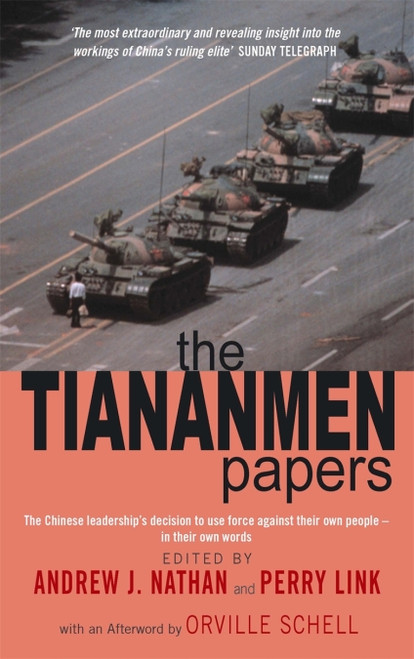On June 4, 1989, People's Liberation Army soldiers opened fire on unarmed civilians in Beijing, killing untold hundreds of people. A quarter-century later, this defining event remains buried in China's modern history, successfully expunged from collective memory. In The People's Republic of Amnesia, National Public Radio correspondent Louisa Lim charts how the events of June 4th changed China, and how China changed the events of June 4th by rewriting its own history.
Lim reveals new details about those fateful days, including how one of the country's most senior politicians lost a family member to an army bullet, as well as the inside story of the young soldiers sent to clear Tiananmen Square. She also introduces us to individuals whose lives were transformed by the events of Tiananmen Square, such as a founder of the Tiananmen Mothers, whose son was shot by martial law troops; and one of the most important government officials in the country, who post-Tiananmen became one of its most prominent dissidents. And she examines how June 4th shaped China's national identity, fostering a generation of young nationalists, who know little and care less about 1989. For the first time, Lim uncovers the details of a brutal crackdown in a second Chinese city that until now has been a near-perfect case study in the state's ability to rewrite history, excising the most painful episodes. By tracking down eyewitnesses, discovering US diplomatic cables, and combing through official Chinese records, Lim offers the first account of a story that has remained untold for a quarter of a century.
The book contains stories of (and interviews with) some of those affected by the 1989 student protests, reviewing the events from the perspectives of current and former military personnel, students, protesters and their relatives. Some of the best-known interviewees are Wu'erkaixi, one of the student leaders of the protests; Zhang Xianling, co-founder of Tiananmen Mothers, and Bao Tong, former policy secretary to the General Secretary of the Chinese Communist Party.
● Finalist for the 2015 Helen Bernstein Book Award for Excellence in Journalism
● Longlisted for the Lionel Gelber Award for the Best Non-Fiction book in the world on Foreign Affairs
● An Economist Book of the Year, 2014
1989年6月4日,中國人民解放軍士兵在北京向手無寸鐵的平民開槍,造成數百人死亡。四分之一個世紀後,這一決定性事件仍然被埋藏在中國現代歷史中,並成功地從集體記憶中刪除。在《失憶人民共和國》這書中,國家公共廣播電台記者林慕蓮(Louisa Lim) 記錄了6月4日的事件如何改變了中國,以及中國如何透過改寫自己的歷史來改變六四事件。
作者透露了那些改變命運日子的新細節,包括中國最資深的政治家之一如何失去一家庭成員,以及被派去清理天安門廣場的年輕士兵的內幕故事。她也介紹了那些因天安門廣場事件而改變生活的人,例如天安門母親的創始人,他的兒子被戒嚴部隊槍殺;以及中國最重要的政府官員之一,天安門事件後,他成為最著名的持不同政見者之一。她探討了六四事件如何塑造了中國的國家認同,培養了一代年輕的民族主義者,他們對 1989 年知之甚少,也不太關心。作者首次揭露中國另一城市殘酷鎮壓的細節,這是迄今為止一個近乎完美的案例研究,展示了中國纂改歷史的能力,刪除了最痛苦的片段。透過追蹤目擊者、發現美國外交電報以及梳理中國官方記錄,作者首次講述了一個四分之一個世紀以來一直不為人知的故事。
這本書包含了一些受 1989 年學生抗議影響的人的故事(和採訪),從現任和前任軍人、學生、抗議者及其親屬的角度回顧了這些事件。一些最著名的受訪者包括抗議活動的學生領袖之一吾爾開希;天安門母親共同創辦人张贤亮和中共前總書記鲍彤。
● 入圍 2015 年海倫伯恩斯坦傑出新聞圖書獎決賽
● 入圍萊昂內爾‧格爾伯獎全球最佳非小說類外交書籍獎
● 2014 年經濟學家年度最佳書籍
Table of Contents
Introduction
1. Soldier
2. Staying
3. Exile
4. Student
5. Mother
6. Patriot
7. Official
8. Chengdu
Afterword
![]() Preview (external link)
Preview (external link)





